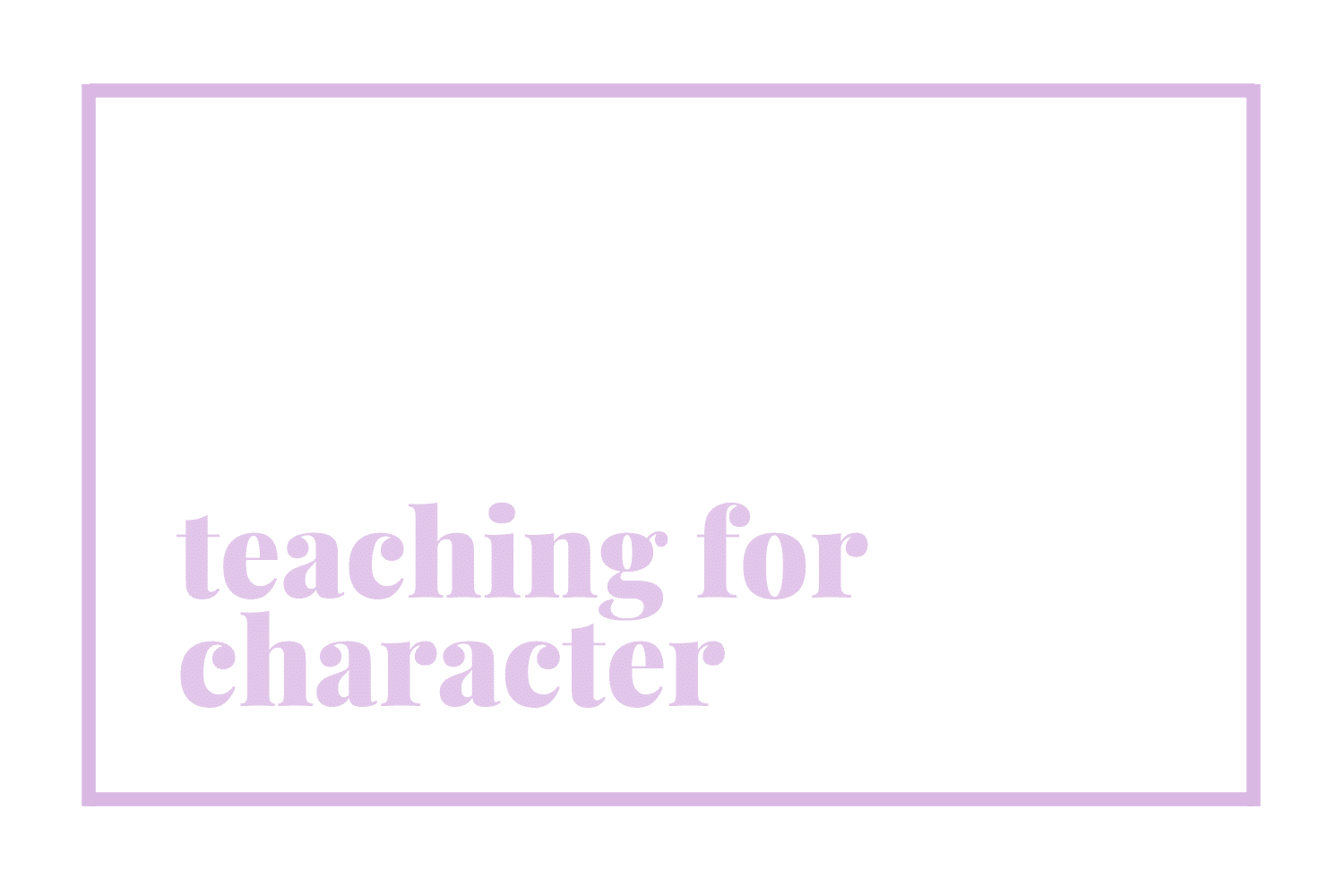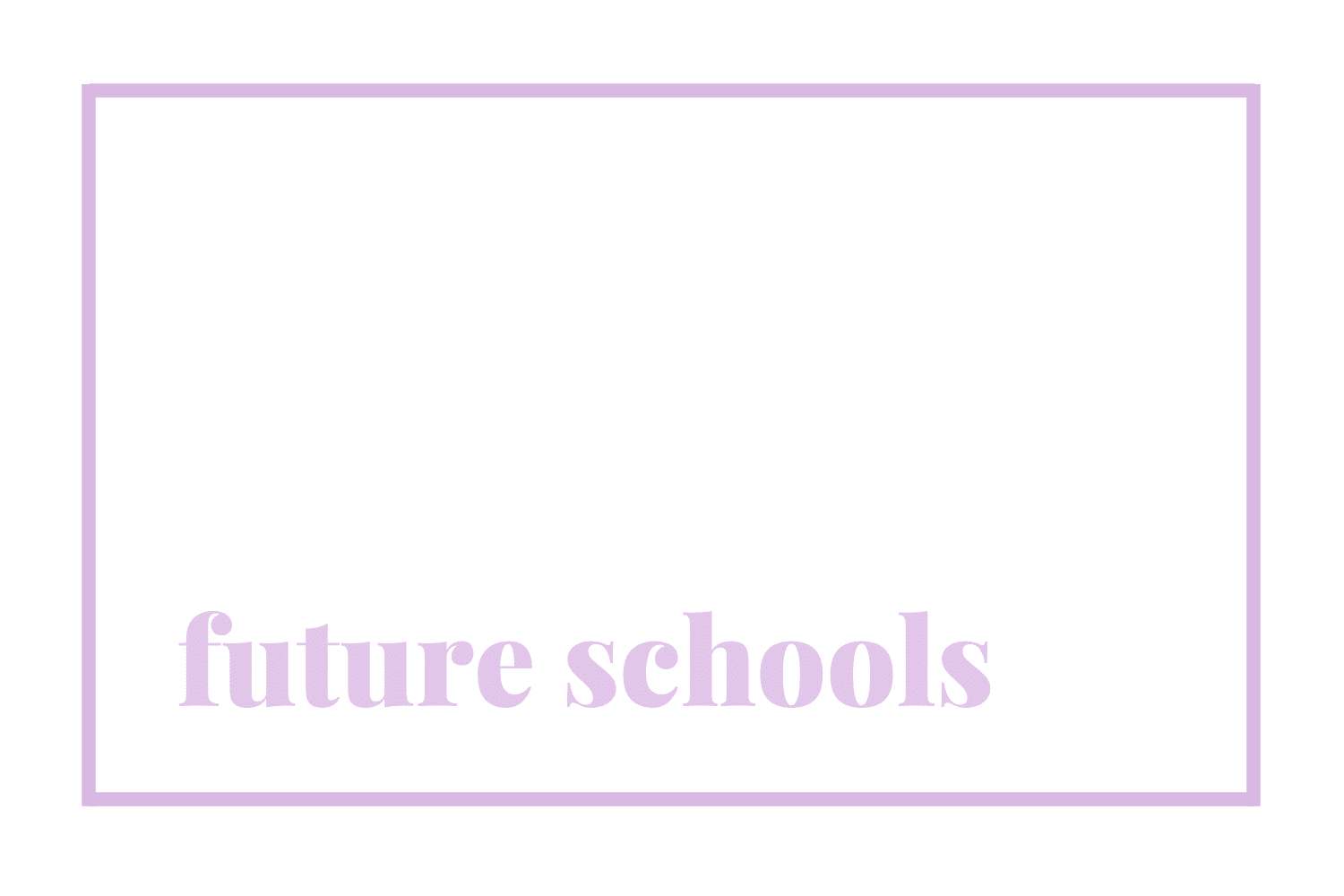
GAME CHANGERS
In a School for tomorrow. we want to influence a research-driven community of inquiry and practice to find a way to educate students to learn the character, competency and wellness required to thrive in our world. This community needs to cultivate a growth mindset, empower learners, and personalise learning so that all can learn the self-awareness of knowing themselves through asking: who am I?

LEADING AN EDUCATION TO LEARN
The Game Changer who influences as a research-driven instructional leader understands the primacy of an education for character, competency and wellness in a School for tomorrow. Character is the reason why we do school. Competency is the way we express that. Our physical and mental wellness is influenced by and in turns influences both of these things. We need to understand how they fit together if we are going to do educational leadership well.
A competency is the capacity of students to demonstrate how they have grown in an educational process that asks them deliberately and simultaneously to know, to do, to be, and to learn. Character competency is the cultivation and demonstration of those strengths, qualities, and outcomes that are aligned with the values, dispositions, and actions that are associated with civic character, performance character, and moral character: a sense of belonging developed in response to their meeting civic obligations, the fulfilment of potential through the increasing attainment of performance standards, and the capacity to reflect on what is good and right for them to do in their lives, especially in the light of their ongoing moral challenges. Wellness is how we experience health and happiness in the world. Our wellness (or how well we feel) is influenced by our health – physical, psychological, emotional, and spiritual, our satisfaction with the lives we are leading, and the sense of purpose and connectedness we have. Our character is directly affected by our wellness; how well we are is so very important to how we live our lives and who we are becoming through all of the social relationships and educational processes, the journeys towards character we experience on The Pathway to Excellence.
A model around which shared understanding and, eventually, a community of inquiry and practice might be built, is both desirable and possible, particularly through the design and delivery of a framework for education for character, competency and wellness. This model must show how such an education occurs in every part of the school, is built through relationship, refined through specific pedagogies, and propelled by the culture of the school. An education for character, competency and wellness must be built according to design principles that encourage educators to plan, share, coach, measure, listen for, live, grow, and defend it. Through a blend of explicit and implicit, deliberate and spontaneous learning, it must seek above all to grow the character of the whole person. This will be expressed in a set of graduate outcomes that indicate what sort of person the community wants to produce and how they are ready to thrive in their world. It must show how a learner asks and answers the question “Who am I?” as the first step on The Pathway to Excellence.
The Way refers to a research-driven and evidence-based approach to building such an education in a School for tomorrow. It equips educators in a community of inquiry and practice with an approach to building the education, culture, leadership and performance to develop the character, competencies and wellness that empower students on The Pathway to Excellence to acquire the adaptive expertise and self-efficacy to thrive in their world. Based on the past decade of research work by the team at CIRCLE - The Centre for Innovation, Research, Creativity and Leadership in Education, The Way proposes eight essential learnings:
- We are called as educators to help others to strive for excellence and to develop their character and competencies.
- Character is why we do school.
- What educators think about character matters.
- Character is the whole work of a school.
- Development of character, competency and wellness relies on relationship.
- An education for character, competency and wellness education works best when it’s deliberate, targeted and intentional.
- School leaders show the way forward
- A good school focuses on the whole education of the whole person – a great school assembles the ingredients of high-performance culture in delivering this education.
We believe that it is important to understand how what we do individually in an education for character, competency and wellness can be situated within this description of the way we might work together collectively. What educators think about character matters. How teachers think and feel about character and its relationship to their educational purpose shapes and directs the development, attainment, and measurement of civic, performance, and moral character competencies, the expression of these in a set of desired graduate outcomes, and the delivery of these outcomes through a framework. How we think about our practice in relation to this model and how we connect this practice to the context, design, and experiences of learning for character, competency and wellness across all aspects of a school helps us to locate and assess our work.
“We will continue to educate for the realisation of maximum human potential ... The spirit of endurance will continue to be nurtured, despite much of society’s preoccupation with the instant and the short-term. We will nurture the courage to stand up and speak out and take action.”
Julie Gillick
LEADING THE WAY
As leaders of learning, we also need to understand how to demonstrate the technical expertise to lead a community to make progress in their learning and grow in the adaptive expertise and self-efficacy required to build the character, competency and wellness needed to thrive in the world.
Progress is defined by the growth, motivation, engagement, achievement, and qualification by a student, teacher, and leader in each of the competencies they need to thrive in their world. All of these concepts are, therefore, connected intimately with each other; inherent in this connectedness is the measurement of a person’s progress according to growth in mastery of competencies, organisation of one’s life around these competencies, and a sense of thriving in the world through these competencies. Adaptive expertise means human beings growing in character, competencies and wellness and using these to solve known and new problems. It is, in essence, our commitment to growth. Self-efficacy means human beings organising themselves and their learning, living, leadership and work to optimise their character, competencies and wellness so that they can thrive in their world. It is our capacity to be the best version of ourselves that we can be. Thriving means human beings applying their character, competency, and wellness to learn, live, lead and work well in a world that needs them:
- Have the integrity to lead meaningful lives as good people
- Have the ability to manage complexity with authenticity as future builders
- Grow and transform themselves as continuous learners and unlearners
- Provide sustainable direction to the world as solution architects
- Balance the local, the regional, and the global with perspective as responsible citizen
- Work well in relationship with others, to bring success and fulfilment for all as team creators
So our leadership purpose is to build fit for purpose learning within a culture of growth-minded change. We need to recognise that change in a school is founded on the co-creation of an agreed rationale for transformation, a shared approach to change readiness and a clear map for organisational development throughout the community. As research-driven instructional leaders who are seeking to influence the growth of others, we need to be committed to growing and improving through our lives and be prepared for a lifetime of learning and unlearning ourselves. We also need to go beyond student learning to promote effective adult learning. This means institutionalising the desire to learn from all of the experiences of schooling to implement changes that improve outcomes for more learners. Our particular leadership competency in this respect lies in orientating our community to a preferred future. We believe that leading through transformation commits the school and everyone in it to growth. This is characterised by adopting behaviours of adaptive expertise and professional self- efficacy in pursuit of the progressive attainment of iterative standards. This draws on the leadership capability to understand and manage change. We bring about change in an intentional, goal-oriented and purposeful way. We employ effective processes and strategies to overcome resistance, enhance learning and maintain team cohesiveness. And along the way, we are acquiring even greater expertise in using different methods to resolve conflict and they employ suitable techniques to bring individuals and groups to short-term agreement and improve long-term working relationships in a fit for purpose learning culture.
A fit for purpose learning culture means stepping forward into a preferred future where: vision and vocabulary are shared; value propositions are agreed by the school community; the velocity, shape, and trajectory of change are designed and implemented to meet the needs of internal and external contexts. All learning journeys are formed in relationship within the values, context and culture of the school community. They are enhanced by a shared commitment to continuous learning, a flexible online and offline approach to the design, development and delivery of learning and teaching that allows all to access learning from their own location. Continuous learning does not prescribe a particular pedagogical approach but has the potential to support student-centred and student-led approaches to personalised learning progress.
How can we fine-tune our instructional leadership to shape such a culture? The Canadian educator Michael Fullan advises us to look to the essential conditions we are responsible for creating to optimise learning within the context of a School for tomorrow. We need to focus on the intrinsic motivation of all of us. Our shared work is the work of continuous learning and improvement. We need to recruit 100% of students and teachers to this cause and inspire teamwork. Fullan also encourages us to look to the difference between wrong vs right drivers for improvement if we are going to create an organisation for continuous learning and improvement: Accountability vs Capacity Building; Individual vs Teamwork; Technology vs Pedagogy; Piecemeal vs Systematic. The work of Robert Kagan and Lisa Laskow Leahy from Harvard University tells us that there are seven critical attributes of an organisation that can become a home for the continual transformation of talent in a fit for purpose culture of continuous learning and improvement. It recognises that, like adolescence, adulthood must be time for ongoing growth and development. It honours the distinction between technical and adaptive learning agenda. It recognises and cultivates the individual’s intrinsic motivation to grow. It assumes that a change in mindset takes time and is not evenly paced. It recognises that mindsets shape thinking and feeling, so changing mindsets needs to involve the head and the heart. It recognises that neither change in mindset nor change in behaviour alone leads to transformation, but that each must be employed to bring about the other. It provides safety for people to take the kinds of risks inherent in changing minds.
So, if a School for tomorrow. is going to build the fit for purpose culture of growth-minded change needed to design and deliver an education for character, competency and wellness, then the adults in it who are charged with the care and learning of the students need to model the graduate outcome of the continuous learner and unlearner. If adults are going to do this, the starting point for our leadership of them is understanding that their hearts must be with us. Our leadership task in this instance cannot start in the cognitive domain, however, so we must work in the affective domain to help people to grow, become change-ready, transform themselves, and transform the school itself: we need to win hearts before provoking heads when we lead The Way.

TEACHING FOR CHARACTER
Character is the way we live life. Do we belong? Are we fulfilling our potential? Are we doing what is good and right? These are powerful questions we ask about our civic, performance and moral character. Sometimes to answer them we search deep and discover an inner sense of who we are, and who we may become; this is our mark as a person...

FUTURE SCHOOLS
We need to be building, implementing, and evaluating an education that genuinely seeks to grow the character, competency and wellbeing of students so that they can thrive in their world requires an agreed vision for what this school might look like. This needs to be expressed in terms of an agreed strategy towards and approaches to leadership that create a shared sense of purpose, place, practice, programs, process, and product...

THE WHOLE WORK OF A SCHOOL
A model around which shared understanding of the centrality of a set of graduate outcomes and, eventually, a community of inquiry and practice in how best to deliver these outcomes and the character and competencies on which they are based, is both desirable and possible. This model must show how character education occurs in every part of the school, is built through relationship, refined through specific pedagogies, and propelled by the culture of the school. An education for character and competency must be built according to design principles that encourage educators to plan, share, coach, measure, listen for, live, grow, and defend it...

PERSONALISING PATHWAYS TO PERFORMANCE IN FUTURE SCHOOLS
Understanding how to tune a process of performance development for teachers to their situation and needs by balancing impact with investment and offering personalised pathways may well be key knowledge for Future Schools, who need to ensure that their educators are actually bringing about the necessary change that characterises all good learning and development. What do we mean by performance? What lies at the heart of how great schools do what they do?...

ASSESSING CHARACTER
The journey towards character from “me” to “you” to “us” is the relevant social purpose to which assessment of and for learning might be put. Each teacher needs to work through how this bigger picture plays out in terms of the more granular day to day activity of teaching and learning in school. With this purpose in mind, and its application in context mapped on a continuum of growth of the student in terms of their civic, performance and moral character and their associated competencies...

THE EXPERIENCE OF IMMERSION IN FUTURE SCHOOLS
Bringing both the character-rich educational purpose of The Pathway to Excellence and the rigour of research-driven, evidence-based, and student-centred practice to the design and development of experiential learning is one key way that the learning of students is being transformed in Future Schools. We are moving from intuition and personal preference in the design of education to an insistence that what we do is based on what leading practice warrants inside and outside the classroom...

CHARACTER LEARNING IN PRACTICE
The purpose of a School for tomorrow is to prepare our students to thrive in their world. How we educate for character and competency is the core business of this; it is the whole work of a school and the work of a whole school. An agreed and documented framework for education helps a school to gather evidence about, align, implement, and evaluate its shared educational vision within a community of inquiry and practice dedicated to achieving its graduate outcomes...

THE CULTURE IN FUTURE SCHOOLS
Schools around the world are increasingly developing a much sharper understanding of why culture matters. The culture of Future Schools depends on the proclivity towards inquiry. In our research, we can see that making decisions and reviewing standards where asking the right questions and pursing excellence in answering them is at the heart of a growth-minded change culture. It is how we best model and teach all of the competencies our students need to thrive in their world...